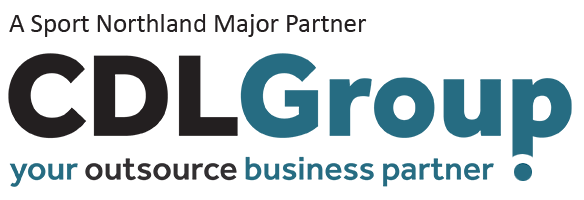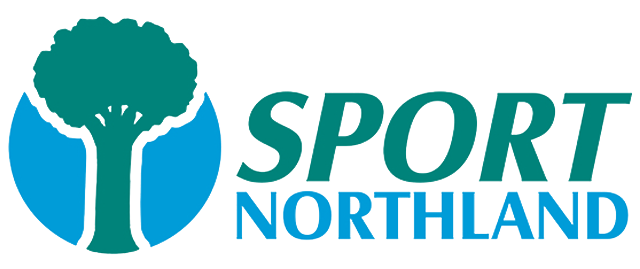

WOMEN & GIRLS
Creating an empowering and inclusive active recreation and sport system
COLLABORATION: SPORT NORTHLAND & RESPORT CHARITABLE TRUST
We are proud to promote the "Positive Participation through Puberty" initiative, a collaboration which aims to empower Northland’s youth by promoting confidence, comfort, and participation during their adolescent years.
Recognising the unique challenges faced by young people during puberty, ReSport and Sport Northland are committed to ensuring that every young person has access to appropriate sportswear while reiterating the availability of period products in schools and kura through the Ministry of Education’s Ikura | Manaakitia te whare tangata programme, which currently provides products for 82% of schools and kura in Northland.
As part of this initiative, our campaign to collect sports bras and active wear aims to reduce barriers and support adolescents in Northland to participate in sports and recreational activities with confidence and enthusiasm.
Key Objectives of the Initiative
- Empower Youth: By providing essential sportswear, we aim to boost the self-esteem and comfort of adolescents, encouraging their continued participation in sports.
- Reduce Barriers: Access to suitable sportswear can significantly impact school attendance and involvement in physical activities. This initiative seeks to remove these barriers, promoting a healthier and more active lifestyle, with positive interaction at school.
- Community Support: We are calling on the community to donate clean, fit-for-purpose new or gently used sports bras and active wear. These donations will directly support Northland’s adolescents, making a tangible difference in their lives.
Donation Information
Community members can drop off their donations at the nearest collection points listed on the ReSport Charitable Trust website.
For more information about the Positive Participation through Puberty initiative and how you can get involved, please visit the ReSport Charitable Trust website.
You can also contact:
Sharon Gibson - Project Coordinator, ReSport Charitable Trust
[email protected] | 021 2 442 811
Ellie Eastwood - Regional System Connector, Sport Northland
[email protected] | 0226903390
EMPOWERING OUR WOMEN & GIRLS
Sport New Zealand’s #itsmymove campaign targets women & girls, encouraging them to embrace an active lifestyle – whatever this looks like for each individual. Formal, organised sports and activities are not the only way to be active!
#itsmymove has collaborated with Les Mills to encourage and support young women to move however they want.
Check out the website to find free online workouts, podcasts, playlists, as well as plenty of information and resources to help wahine move their way!
Sport New Zealand's Women and Girls in Sport and Active Recreation Strategy aims to ensure that all women and girls are visible, feel positive about the contribution they make, and value being involved and participating in all levels of play, active recreation and sport.
WHY?
- Only 34% of young women aged 15-17 are meeting the physical activity guidelines.
- The drop-off begins at 12-14, where 48% of 12-14 year-olds meet the guidelines, while 56% of boys meet the guidelines of at least 7 hours per week.
- 9 in 10 young women want to be active
- 96% of young women understand why taking part in physical activity is good for them
- By the age of 16, there is a 22% difference between the time young women and young men spend being active
- By 17, this gender gap increases to 28%
- 68% of young women will avoid doing physical activity if they do not feel confident about their bodies
- 83% of young women aged 17 would like to be more active than they currently are but are more likely to say they are too busy or too tired to increase their participation
To support young women to lead healthy and active lives we need to understand what matters to them!
For more information or enquiries contact:
Zane Davis - [email protected]
Ellie Eastwood - [email protected]
What barriers do you face to participating in play, active recreation & sport as a wahine in Northland?
Share your experiences with us at this link.
- Focus on wellbeing
Enhance young women’s holistic wellbeing by creating opportunities and environments in which young women can thrive, enhancing wellbeing rather than adding stress and pressure.
- For young women, with young women
Take time to engage with them, understand their world, their fears, their concerns, their worries, their aspirations, their motivations and their wants.
- Every move counts
Value and encourage all forms of physical activity, with the perspective some physical activity is better than none.
- For 'the feels'
‘Feel good’ moments are key motivators for young women and most of the time these come from fulfilling their own goals and aspirations, not from competitive results.
- Free of judgement
Create physical and social environments free of judgement, embarrassment and expectation.
- Young women as leaders
Create opportunities to give them a voice and a platform to lead.
- The power of sisterhood
Use the power of friendship and peers to motivate young women to join and engage in activity by creating offerings that encourage social connection.
- Digital lives
Think how you can use devices, digital platforms and social media to engage with young women and offer your products/activities.
- Not just for the sporty
Quality physical activity can look like, feel like and sound like lots of different things, not just traditional sport.
- Physical activity 'on demand'
Think about options that can fit around young women’s lives, opportunities and activities that young women can decide when and how to engage with.
For the full 2021 Young Women Profile click here - A resource to assist organisations in understanding the needs of young women, and support quality experiences in active recreation and sport.
WHY?
Young women and girls all over the world face similar issues when it comes to sport and recreation. The pressure placed on wahine is tough; adolescence is already a confusing time, and today there are many societal pressures which cause girls to feel intimidated and anxious. Confidence is a big barrier, and it doesn’t help when you feel judged.
Young women desire safe spaces free from judgement. They will generally choose not to participate in environments that condone such judgement and will drop out of activities when they feel continually compared to others for their abilities or their appearance.
As young women get older, the more competitive nature of sport promotes an increasingly pressured environment that can drive them away from participating. Similarly, intimidating or mostly male-dominated environments are more likely to be avoided. The kind of activities young women participate in tend to change from organised physical activities to self-driven activities as they mature. By age 17, the top three activities young women undertake are running, workouts and walking.
Social judgement, body confidence, and confidence in their abilities all factor into young women’s decision to participate, and statistics show young women are doing less physical activity than young men of the same age.
The importance of ‘fun’ in physical activity cannot be overemphasised; it outweighs and counteracts the stress, emotional pressures, and social & whānau complications in young women’s daily lives. Many young women report the outcomes of physical activity are feelings of accomplishment, self-worth and empowerment. This sense of accomplishment incentivises continued and future participation.
It is clear the confidence levels of girls and young women impact on their willingness to participate in or continue with an activity. Welcoming and supportive environments that focus on positive outcomes and encourage young women to evaluate their competence favourably are critical to keeping them engaged in physical activity. Furthermore, activities that are non sport-specific and promote fun and enjoyment can be a great way to allow girls to gain confidence in movements and activity, improving their physical literacy.
SPORT NORTHLAND
CDL Group Northland Sports House
97 Western Hills Drive, Kensington,
Whangārei 0112
[email protected]
CDL Group Northland Sports House - 09 437 9600
McKay Stadium / Kensington Fitness - 09 437 4404




 Members
Members Admin Login
Admin Login